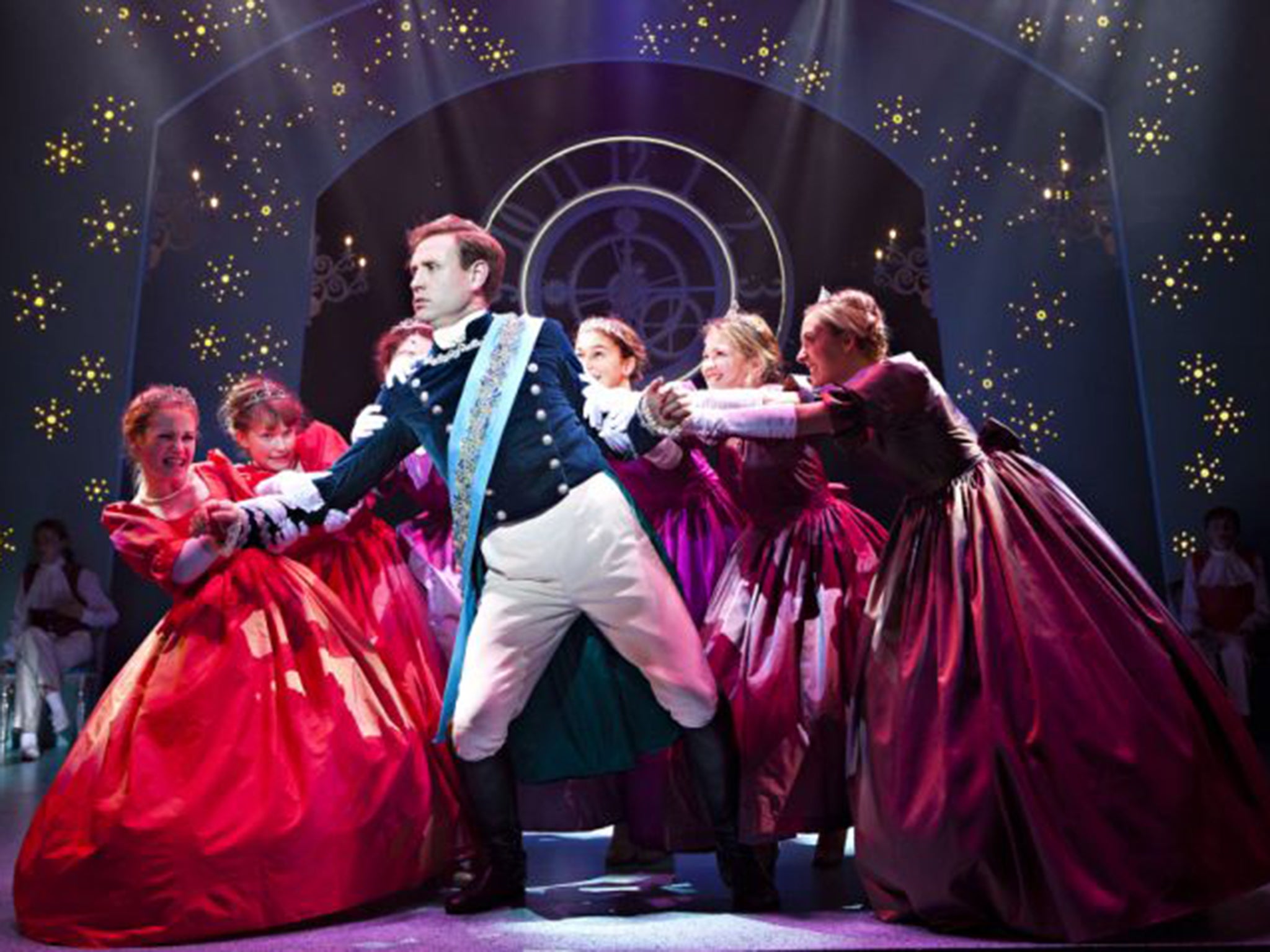Pantomime leads the pack in quest to entertain autistic theatre-goers
‘Relaxed’ performances – featuring quieter songs and no pyrotechnics – proving popular

Your support helps us to tell the story
From reproductive rights to climate change to Big Tech, The Independent is on the ground when the story is developing. Whether it's investigating the financials of Elon Musk's pro-Trump PAC or producing our latest documentary, 'The A Word', which shines a light on the American women fighting for reproductive rights, we know how important it is to parse out the facts from the messaging.
At such a critical moment in US history, we need reporters on the ground. Your donation allows us to keep sending journalists to speak to both sides of the story.
The Independent is trusted by Americans across the entire political spectrum. And unlike many other quality news outlets, we choose not to lock Americans out of our reporting and analysis with paywalls. We believe quality journalism should be available to everyone, paid for by those who can afford it.
Your support makes all the difference.Hundreds of families with autistic children are enjoying pantomimes for the first time this Christmas, as a growing number of theatres offer “relaxed” performances of their seasonal shows.
With their bombastic songs and giddying light effects, pantomimes often prove difficult viewing for children with autism and sensory disorders, with many parents opting to give the shows a miss.
But this year theatres across the country are staging specially adapted performances with quieter music and no sudden noises or pyrotechnics. Actors and ushers at so-called “relaxed performances” are trained to expect and welcome noise from the audience, meaning parents can bring their autistic and disabled children without worrying about disturbing other patrons.
Theatres offering relaxed pantomimes this year include Newcastle Theatre Royal (Snow White and the Seven Dwarfs), Birmingham Hippodrome (Jack and the Beanstalk) and the Mercury Theatre in Colchester (Cinderella).
Heather Wildsmith, the culture development manager at the National Autism Society, said the hope is that relaxed performances “open the door” for people with autism to potentially be able to attend a conventional production. “One of the biggest challenges people with autism face is the problem of social imagination, as it is hard for them to face up to new experiences,” she said.
“These performances mean they can adjust to the theatre – with hopefully as few changes to the plot and story as possible – in a neutral environment, before they consider attending a mainstream theatre show.”
Last year, Disney’s The Lion King in London’s West End staged Britain’s first major autism-friendly performance. It was followed by a relaxed The Curious Incident of the Dog in the Night-Time at the National Theatre. Ms Wildsmith added: “All over the country we are seeing autism friendly productions of pantomime, musicals and drama take off as theatres realise there is another type of audience out there that needs to have free and easy access to culture.
“Most important for families with autism is to work to look at their sensory differences, so that means looking at removing loud bangs, the gunfire in Warhorse for example, and working with the actors so they can understand how the audience will react. For example there tends to be quite a bit of hubbub and noise in the audience, so it’s important the cast can rise the dialogue above that.”
Professor Andy Kempe, a professor of drama education at Reading University, said many families living with autism have often felt unable to attend social and cultural events “largely due to the fear of their child attracting negative or even aggressive reactions”.
According to Professor Kempe relaxed performances came about after a complaint over the treatment of a young boy with autism at a West End show in 2011. This resulted in the creation of the Relaxed Performance Project with the support of the RSC and the National Theatre.
Relaxed performances are particularly common in Scotland, where they have been supported by the Scottish National Party. This year there are additional performances in Glasgow and Edinburgh following the success of an autism-friendly panto performance of Cinderella at His Majesty’s Theatre in Aberdeen last year.
Mark McDonald MSP welcomed the rise in popularity of relaxed theatre, but said that “too many autistic children are still missing out on the Christmas tradition because shows are often too loud and bright for them”.
He added: “All it takes are small but important adjustments to make the joy of theatre as inclusive as possible and I hope to see many more organisers follow Aberdeen’s lead.”
Join our commenting forum
Join thought-provoking conversations, follow other Independent readers and see their replies
Comments